- Over 1 million successful rentals
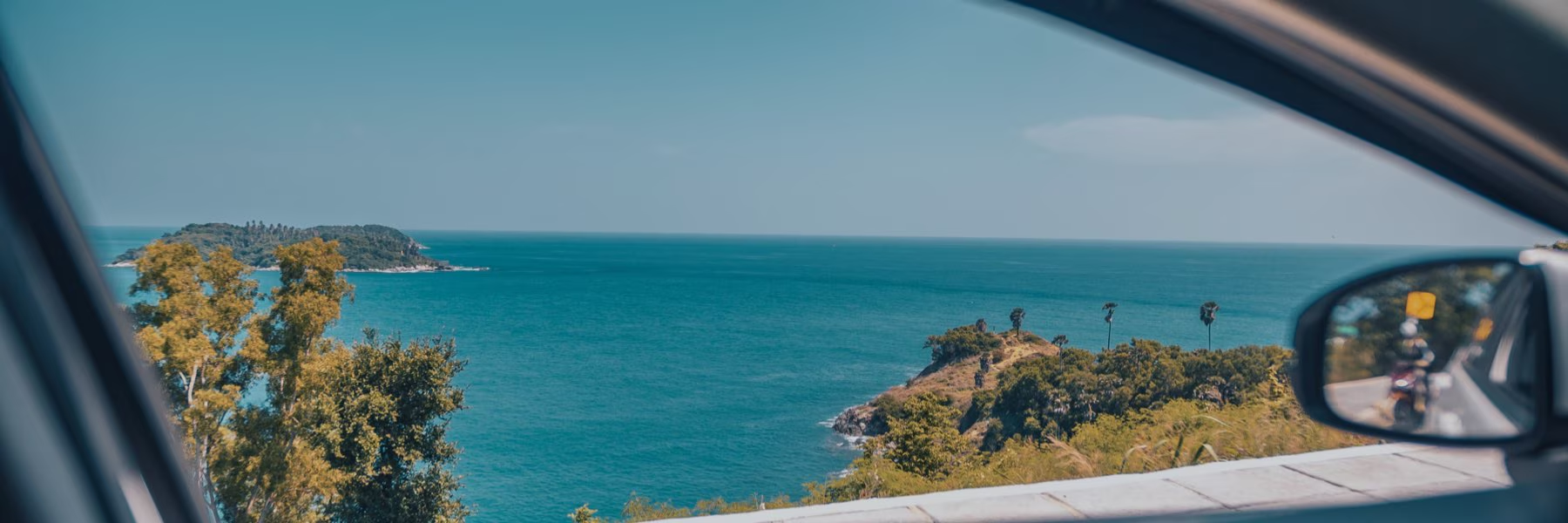
Car Hire Turkey
Save time and money. We compare the offers of car rental companies in Turkey on your behalf.
- Free cancellation Up to 48 hours prior to the scheduled pick up time
- Best price guarantee Have you found a better price? Let us know and we will make you a better offer.
- 24000+ pick-up locations Locations around the world

Compare Car Hire
Carrentals.co.uk offers simple and straightforward car hire comparison services. We don't add a penny to your quotes!
Car rental offers in Turkey
Whether you're looking for a small rental car or a station wagon for the entire family, we will always have a suitable vehicle for the lowest price. Below are some examples from our selection in Turkey.

-
Autounion Car Rental From£ 14 /day -
Pandora car hire From£ 17 /day -
Green Motion From£ 18 /day

-
Garenta From£ 16 /day

-
Autounion Car Rental From£ 18 /day -
Pandora car hire From£ 25 /day

-
Circular car hire From£ 17 /day -
Green Motion From£ 20 /day -
Garenta From£ 21 /day

-
WINDYCAR From£ 18 /day -
Alamo From£ 21 /day -
Sixt From£ 26 /day

-
Circular car hire From£ 20 /day -
Green Motion From£ 100 /day

-
Circular car hire From£ 20 /day

-
Enterprise From£ 24 /day -
Alamo From£ 27 /day -
Hertz From£ 41 /day

-
Sixt From£ 21 /day -
Alamo From£ 22 /day -
Enterprise From£ 24 /day

-
Right Cars From£ 4 /day

-
Right Cars From£ 4 /day -
Autounion Car Rental From£ 15 /day -
Autovia From£ 15 /day

-
Circular car hire From£ 18 /day -
Avec Rent a Car From£ 20 /day -
Autovia From£ 20 /day

-
OK Mobility From£ 13 /day

-
Autovia From£ 14 /day -
Circular car hire From£ 15 /day -
Avec Rent a Car From£ 20 /day

-
Circular car hire From£ 18 /day -
Pandora car hire From£ 21 /day -
Autounion Car Rental From£ 22 /day

-
Circular car hire From£ 14 /day -
SurPrice car rentals From£ 16 /day -
Pandora car hire From£ 17 /day

-
Autounion Car Rental From£ 15 /day -
Avec Rent a Car From£ 26 /day

-
Autounion Car Rental From£ 18 /day -
Avec Rent a Car From£ 25 /day -
addCarRental From£ 27 /day

-
Right Cars From£ 6 /day -
SurPrice car rentals From£ 16 /day -
Enterprise From£ 47 /day

-
Right Cars From£ 6 /day -
SurPrice car rentals From£ 16 /day -
Autounion Car Rental From£ 16 /day

-
Circular car hire From£ 18 /day -
Autounion Car Rental From£ 19 /day -
Pandora car hire From£ 20 /day

-
Right Cars From£ 6 /day -
Pandora car hire From£ 19 /day

-
Autovia From£ 12 /day -
Autounion Car Rental From£ 24 /day

-
Autounion Car Rental From£ 19 /day -
Alamo From£ 29 /day -
Enterprise From£ 31 /day

-
Autovia From£ 12 /day -
Carwiz rent a car From£ 16 /day -
OK Mobility From£ 16 /day

-
Autovia From£ 14 /day -
Circular car hire From£ 15 /day -
Autounion Car Rental From£ 16 /day

-
Circular car hire From£ 22 /day -
Autounion Car Rental From£ 29 /day -
Budget From£ 35 /day

-
Autovia From£ 12 /day -
Pandora car hire From£ 18 /day -
Alamo From£ 24 /day

-
Autovia From£ 13 /day -
Circular car hire From£ 18 /day -
Autounion Car Rental From£ 18 /day

-
Circular car hire From£ 18 /day -
Autovia From£ 20 /day

-
Autovia From£ 13 /day -
Green Motion From£ 20 /day -
Budget From£ 92 /day

-
Autovia From£ 14 /day -
Circular car hire From£ 15 /day -
wheego From£ 23 /day

-
Autovia From£ 20 /day -
Autounion Car Rental From£ 20 /day -
Circular car hire From£ 21 /day

-
Autovia From£ 15 /day -
SurPrice car rentals From£ 17 /day

-
Autovia From£ 15 /day

-
Autovia From£ 20 /day

-
Autovia From£ 14 /day -
Alamo From£ 48 /day

-
Pandora car hire From£ 18 /day

-
Pandora car hire From£ 20 /day

-
Circular car hire From£ 22 /day -
WINDYCAR From£ 24 /day -
Garenta From£ 62 /day

-
Circular car hire From£ 24 /day

-
Circular car hire From£ 26 /day

-
Avec Rent a Car From£ 31 /day

-
Goldcar From£ 26 /day -
Europcar From£ 36 /day -
Alamo From£ 51 /day

-
Goldcar From£ 26 /day

-
WINDYCAR From£ 24 /day

-
WINDYCAR From£ 25 /day

-
Pandora car hire From£ 37 /day

-
WINDYCAR From£ 29 /day -
Alamo From£ 56 /day

-
Autounion Car Rental From£ 36 /day -
Europcar From£ 70 /day

-
Avec Rent a Car From£ 38 /day

-
Pandora car hire From£ 37 /day -
Garenta From£ 59 /day

-
Enterprise From£ 39 /day -
Alamo From£ 43 /day

-
Avec Rent a Car From£ 38 /day -
Goldcar From£ 85 /day

-
Avec Rent a Car From£ 44 /day -
WINDYCAR From£ 78 /day

-
Avec Rent a Car From£ 43 /day

-
Alamo From£ 45 /day -
Avis From£ 60 /day -
Enterprise From£ 87 /day

-
Garenta From£ 45 /day

-
Enterprise From£ 48 /day -
Alamo From£ 53 /day -
Avis From£ 66 /day

-
WINDYCAR From£ 48 /day -
Garenta From£ 72 /day -
Alamo From£ 91 /day

-
Avec Rent a Car From£ 53 /day

-
Alamo From£ 49 /day

-
Green Motion From£ 52 /day

-
Right Cars From£ 6 /day -
Pandora car hire From£ 19 /day

-
Circular car hire From£ 15 /day -
Green Motion From£ 21 /day

-
Circular car hire From£ 18 /day -
Green Motion From£ 83 /day

-
Autounion Car Rental From£ 17 /day -
Garenta From£ 40 /day

-
Autounion Car Rental From£ 18 /day -
Green Motion From£ 43 /day

-
Autounion Car Rental From£ 21 /day

-
Pandora car hire From£ 25 /day

-
Autounion Car Rental From£ 24 /day

-
Alamo From£ 24 /day -
Sixt From£ 28 /day -
Enterprise From£ 33 /day

-
Autovia From£ 13 /day -
Sixt From£ 23 /day -
Garenta From£ 61 /day

-
Autovia From£ 20 /day

-
Sixt From£ 33 /day

-
Circular car hire From£ 43 /day -
Pandora car hire From£ 52 /day

-
Circular car hire From£ 47 /day -
Pandora car hire From£ 62 /day

-
WINDYCAR From£ 48 /day -
Sixt From£ 66 /day -
Garenta From£ 72 /day

-
Pandora car hire From£ 56 /day -
Europcar From£ 64 /day -
Autounion Car Rental From£ 92 /day

-
Pandora car hire From£ 48 /day -
Europcar From£ 60 /day -
Autounion Car Rental From£ 82 /day

-
SurPrice car rentals From£ 52 /day -
Circular car hire From£ 66 /day -
Avec Rent a Car From£ 96 /day

-
Autovia From£ 14 /day -
addCarRental From£ 21 /day -
SurPrice car rentals From£ 23 /day

-
Autounion Car Rental From£ 18 /day -
Alamo From£ 23 /day -
Europcar From£ 24 /day

-
Autounion Car Rental From£ 23 /day -
Avec Rent a Car From£ 25 /day -
Europcar From£ 30 /day

-
OK Mobility From£ 21 /day -
Pandora car hire From£ 24 /day -
Avec Rent a Car From£ 28 /day

-
OK Mobility From£ 22 /day -
Goldcar From£ 29 /day -
Green Motion From£ 33 /day

-
Avec Rent a Car From£ 26 /day

-
WINDYCAR From£ 23 /day -
Avec Rent a Car From£ 28 /day -
Alamo From£ 29 /day

-
Avec Rent a Car From£ 27 /day -
Alamo From£ 35 /day -
Enterprise From£ 38 /day

-
WINDYCAR From£ 25 /day -
Goldcar From£ 32 /day -
SurPrice car rentals From£ 36 /day

-
Garenta From£ 16 /day

-
Garenta From£ 26 /day

-
Garenta From£ 35 /day

-
Garenta From£ 27 /day

-
Garenta From£ 30 /day

-
Enterprise From£ 41 /day -
Alamo From£ 72 /day

-
Alamo From£ 31 /day -
Enterprise From£ 34 /day

-
Garenta From£ 31 /day

-
Enterprise From£ 47 /day -
Alamo From£ 47 /day
Popular cities in Turkey

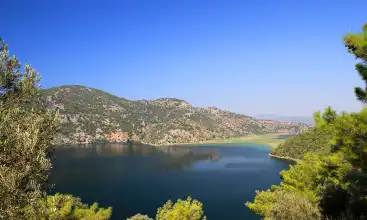
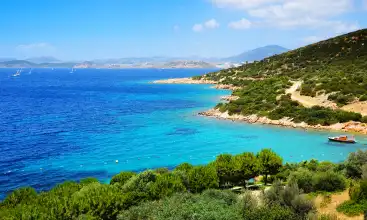
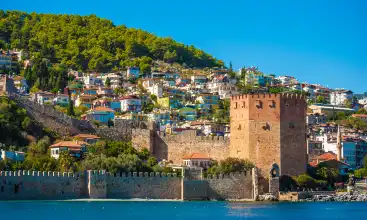
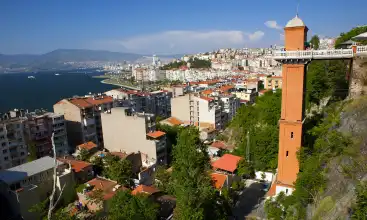

Popular rental locations in Turkey
-
Car Hire Dalaman AirportFrom
£ 14 /day -
Car Hire Bodrum AirportFrom
£ 17 /day -
Car Hire Antalya AirportFrom
£ 4 /day -
Car Hire Istanbul AirportFrom
£ 13 /day -
Car Hire Izmir AirportFrom
£ 7 /day -
Car Hire Gaziantep AirportFrom
£ 20 /day -
Car Hire Kayseri AirportFrom
£ 16 /day -
Car Hire Ankara Esenboga AirportFrom
£ 16 /day

When to book a rental car in Turkey
Turkey - When is the most affordable time to rent a mini class car?
At this destination (Turkey), February is the most affordable time to rent a mini class car with an average daily rate of
Turkey - When is the most affordable time to rent a economy class car?
At this destination (Turkey), February is the most affordable time to rent a economy class car with an average daily rate of
Turkey - When is the most affordable time to rent a compact class car?
At this destination (Turkey), February is the most affordable time to rent a compact class car with an average daily rate of
Turkey - When is the most affordable time to rent an intermediate class car?
At this destination (Turkey), November is the most affordable time to rent a intermediate class car with an average daily rate of
Turkey - When is the most affordable time to rent a standard class car?
At this destination (Turkey), November is the most affordable time to rent a standard class car with an average daily rate of
Turkey - When is the most affordable time to rent a full-size car?
At this destination (Turkey), November is the most affordable time to rent a full-size class car with an average daily rate of
Turkey - When is the most affordable time to rent a luxury car?
At this destination (Turkey), November is the most affordable time to rent a luxury class car with an average daily rate of
Turkey - When is the most affordable time to rent a station wagon?
At this destination (Turkey), November is the most affordable time to rent a station wagon with an average daily rate of
Turkey - When is the most affordable time to rent a SUV?
At this destination (Turkey), November is the most affordable time to rent an SUV with an average daily rate of
Turkey - When is the most affordable time to rent a MPV?
At this destination (Turkey), November is the most affordable time to rent an mpv with an average daily rate of
Turkey - When is the most affordable time to rent a minivan?
At this destination (Turkey), November is the most affordable time to rent a minibus with an average daily rate of
Turkey - When is the most affordable time to rent a sports car?
At this destination (Turkey), November is the most affordable time to rent a sports car with an average daily rate of
Turkey - When is the most affordable time to rent a convertible?
At this destination (Turkey), February is the most affordable time to rent a convertible with an average daily rate of
Turkey - When is the most affordable time to rent a sedan?
At this destination (Turkey), January is the most affordable time to rent a sedan with an average daily rate of
Car rental locations in Turkey
Carrentals.co.uk compares rental car prices at the following destinations

Turkey Guide
Turkey is best explored by rental car. Carrentals.co.uk has over 39 pick-up locations in Turkey. This means there is always a pick-up location close to your destination.
Most popular car hire locations in Turkey
Driving
Turkey has been charming visitors with its diverse landscapes, mouthwatering cuisine and heritage-rich cities such as Istanbul for centuries. Indeed, history is proudly flaunted around every corner in this remarkable nation. By car, visitors can tour the Aegean, Black Sea and Mediterranean beaches, wind their way through the remote eastern mountains or discover the unique cave houses of Cappadocia in comfort.
Driving Tips for Turkey
The well-maintained intercity toll ways offer a fast and smooth way to reach your next destination. The condition of toll-free highways varies, but mostly signage is good. Drivers should ensure they carry two warning triangles in case of breakdown.
Driving licences: UK drivers can drive here with a UK photo licence for up to 90 days. An International Driving Permit must accompany any licence that does not incorporate a photograph.
Which side does Turkey drive on?: the right
Speed limits:
Motorways: 74mph (120kph)
Rural areas: 55mph (90kph) or 68mph (110kph)
Built-up areas: 31mph (50kph)
Alcohol limits: 0.05 per cent compared with the UK limit of 0.08 per cent; an alcohol level above this limit could result in severe penalties.
Driving age: 18 years.
Seatbelts: compulsory for all passengers, if fitted. A suitable child seat or restraint is necessary for children under three years, weighting less than 5.6 stone (36kgs) and under 4.9 feet (1.5m) tall.
Mobile phones and GPS: using a mobile phone while driving is prohibited unless used in conjunction with a hands-free kit. The use of GPS is allowed but English speakers may find identifying Turkish locations with GPS difficult.
Cost of fuel in Turkey: petrol is more expensive here than in the UK as it is heavily taxed.
Car hire and fuel payment: credit card payment is accepted at most petrol stations. UK card holders should notify their card supplier that they intend to use their card abroad prior to travel.
Insurance: third-party insurance is included with car hire but excess insurance is recommended.
Traffic and parking: most municipalities have strict, signed parking restrictions. Parking in the wrong place could result in an on-the-spot fine or the towing of your vehicle.
Transport
Trains
Trains run internationally to Turkey from Budapest (Hungary), Thessaloniki (Greece), Tehran (Iran), but are a slow way to arrive. Likewise, Turkey rail travel is slow, yet affordable and often cheaper than travelling by bus. The country’s rail network covers 11,000kms, but many locations of tourist interest are not on the track. For timetables and reservations, visit www.tcdd.gov.tr.
Taxis
Turkey is known for its shared taxis known as dolmus. These minibuses mostly travel on fixed routes. While very cheap, they usually wait until they are full before setting off and stop to pick up and drop off passengers on the way. Regular taxis are also available and charge per kilometer according to a fixed pick-up rate of around £1 and then £0.55 every one kilometre (0.6 mile) travelled thereafter.
Buses
Long-distance buses which travel into Turkey from neighbouring countries usually terminate in Istanbul or other major cities. Bus travel within the country is comfortable, especially when travelling first class, and just about every destination is accessible by bus. Most cities operate inner-city bus services.
Ferries
The port at Istanbul receives ferries and cruise ships from international locations such as Italy, while Bodrum’s port receives services from some of the Greek islands. Some cities, such as Istanbul, offer inner-city ferry as well as inter-city ferry links to other cities such as Izmir. The fare to cross from Istanbul’s European to Asian side is around £0.50. Many coastal areas and Turkish islands are best explored by ferry.
Explore
Exploring Turkey
Most visitors start their Turkish explorations in Istanbul, the Marmara region’s largest and most historic city. Here, some of the country’s most famous architectural wonders lie, including the Topkapi Palace, the Hagia Sophia and the Sultanahmet Mosque (Blue Mosque).
To the south is Aegean Turkey, home to some of the nation’s busiest beach resorts such as Bodrum, the country’s third-largest city of Izmir, the world class Roman ruins of Ephesus and the travertines of Pamukkale.
Less popular with visitors but no less beautiful than Aegean Turkey, Black Sea Turkey takes its name after the body of water whose southern shore it hugs and is a fantastic region for hiking as well as beach hopping.
Central Anatolia is home to the national capital, Ankara, and the underground cities of Cappadocia, a key visitor draw. Mediterranean Turkey to its south offers further beaches, many within easy reach of Antalya.
The little visited east of the country, spanning Eastern Anatolia and Southeastern Anatolia, includes scenic desert and mountain landscapes.
Holidays and Festivals
- New Year's Day (1 January)
- Izmir European Jazz Festival (first half of March)
- International Ankara Film Festival (14-24 March)
- Alanya International Culture and Art Festival (last weekend in May)
- Istanbul International Music Festival (June/July)
- Ramadan (July/August)
Weather
Aegean and Mediterranean Turkey, where the country’s best beaches are situated, feature a Mediterranean climate with hot, sunny summers and mild, sometimes wet winters. The Marmara region, including Istanbul, has similar weather, while the Black Sea region, like the temperate UK, receives rain throughout the year and occasional snowfall in winter. The east experiences the country’s harshest weather and lowest winter temperatures.
Practical Stuff
Turkey Travel Tips
Limit hiccups to your trip by reviewing these travel tips. Most visitors enjoy the beaches and historical sites without hassle, but care when driving and hiking should be taken. Everywhere visitors go, they will be greeted by hospitable locals eager to share their country’s culture and heritage.
Turkey contact numbers:
Country code (+90)
Emergency services – 112
British Embassy, Ankara - +90 312 455 3344
Irish Embassy, Ankara - +90 312 459 1000
American Embassy, Ankara - +90 312 455 5555
Canadian Embassy, Ankara - +90 312 409 2700
Money matters
Turkey uses the Turkish lira (TL) as its official currency. The current currency, introduced in 2005, is a redenomination of the first Turkish lira, which is no longer in use. Currency exchange offices are widely available, while banks are also on hand to exchange money. Euro and US dollars are the easiest currencies to change and are accepted for payment in many shops country-wide. Local currency can also be obtained via ATMs with a credit card.
Health and safety
Petty crime can be a problem in the country’s large cities and popular beach resorts, but keeping a close eye on your belongings and not flashing valuables can help prevent visitors from becoming victims. The road accident rate in Turkey is higher than in the UK so drivers and pedestrians alike should exercise caution. Some areas of the east suffer from ethnic strife so it is advised to check conditions before travel. In rural areas, the local wildlife can present a low risk to hikers, while rabies is an issue country-wide.
Fitting in…
The patriotic Turks are proud of their nation’s heritage, so visitors should be careful not to pass any comments on the country which could be taken as offensive. Visitors shouldn’t confuse the local body language for ‘no’, an upward nod, for ‘yes’. Standing close together here is commonplace, so visitors shouldn’t be surprised if locals don’t seem to respect their personal space on public transport. Enjoying all the food you are offered is a sure way to gain local friendship.
Visas for Turkey
Citizens of the UK can get a multiple-entry tourist visa, valid for three months, on arrival for a small fee. Citizens of France, Germany and Greece, among select other countries, can enter visa-free for stays of up to 90 days.
Electricity
Electricity here operates at 220V, 50Hz. The European style plugs here feature two round prongs.
Business hours
Offices:
08:30 to 12:30 and 13:30 to 17:30, Monday to Friday
Banks:
09:00 to 12:30 and 13:30 to 17:00, Monday to Friday
Shops:
09:30 to 19:00, Monday to Saturday
Helpful phrases
Hello - Merhaba
Where are you from? – Nerelisin?/Nerelisiniz?
Good morning - Gunaydin
Good afternoon - Tunaydin
Good evening - Iyi aksamlar
Good night - Iyi geceler
Excuse me - Izninizle
How much is this? - Ne kadar?
Thank you - Tesekkur ederim
Practical information
-
CurrencyTurkish lira
-
Driving directionRight
-
City speed limit50 km/h
-
Freeway speed limit110 km/h
-
LanguageTurkish
-
Popular car categoryEconomy
What most people want to know
The following questions and answers are a selection of the most popular questions. If you do not find the answer to your question, have a look at the Frequently Asked Questions page or contact us.
- Enterprise
- Avec Rent a Car
- Garenta
- NÜ Car Rentals
- Sixt
- Exer Rent A Car
- Circular car hire
- Avis
- Autounion Car Rental
- National Car Rental
- WINDYCAR
- Budget
- Hertz
- wheego
- SurPrice car rentals
- addCarRental
- Global Rent a Car
- OK Mobility
- Carwiz rent a car
- InterRent
- Pandora car hire
- Alamo
- Goldcar
- Autovia
- Green Motion
- Boycar Rent a Car
- Europcar
- Right Cars
- Rent Go
- OtoQ
- Car Net
- Eren Rent A Car
- Avec Car Rentals
- Aytucar
- Green Rent a car
- Way Rent a Car
- Dollar Rent a Car
- DRIVUS
- United rent a car
- Eternal Rental
- Viaggiare Rent
- Goldcar Key'n Go
- Routes
- Street Rent a Car
- Express Impress
- Ecovia Rent
- Best Rent a Car
- CarVenience Car Rental Aruba
- Keddy By Europcar
- Thrifty